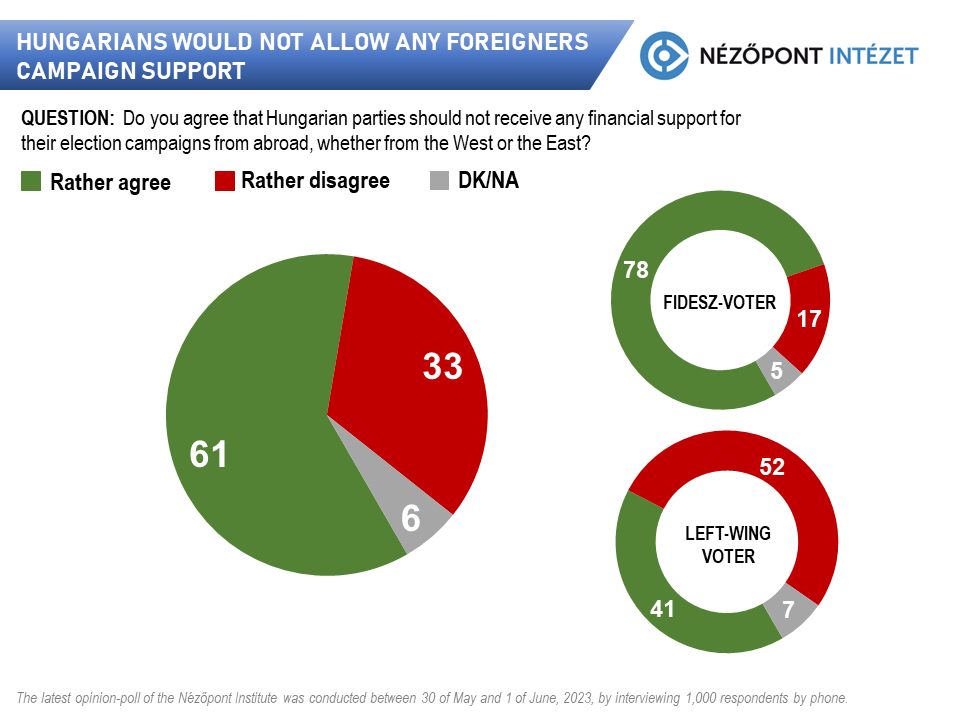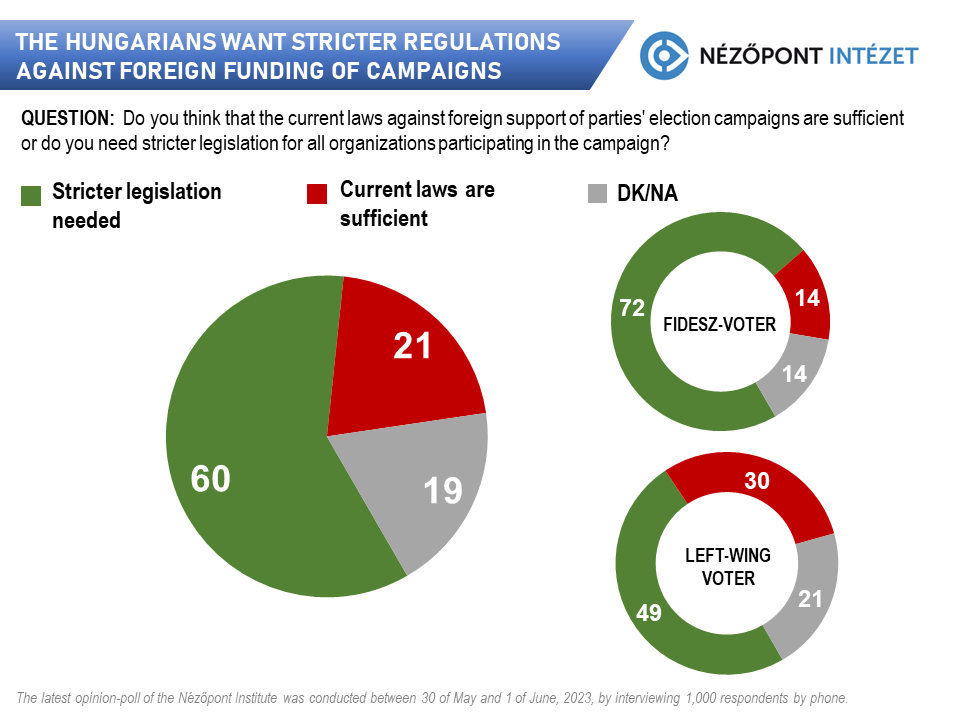According to 61 percent of Hungarians, political parties in Hungary should not receive any financial support from abroad for their election campaigns; and 60 percent think that stricter regulations are needed than the current ones. Even 41 percent of left-wing voters are against any foreign campaign financing, and 49 percent also agree with stricter legislation.
Earlier this year, a partial report published by the National Information Centre revealed that left-wing parties had received a total of more than HUF 4 billion from various foreign organisations for their election campaigns. Péter Márki-Zay, the joint prime ministerial candidate of the left, defended his movement’s foreign funding by claiming that it received the support as an NGO, not as a party, and therefore not illegally. According to the authorities, however, the transactions raise the suspicion of illegal campaign financing. As a result, investigations have been launched, accompanied by political controversy.

There is a clear public opinion on the issue. The majority of Hungarians (61 percent) would not allow any foreign (whether Western or Eastern) financial support for the election campaigns of Hungarian parties, and only a third (33 percent) of them are more lenient on the issue.
It is not surprising that nearly four-fifths (78 percent) of Fidesz voters reject any form of foreign financing of party election campaigns. However, the division among left-wing voters is remarkable. For many of them, their moral sense overrides their party loyalty: four out of ten (41 percent) agree that Hungarian parties should not receive any financial support from abroad for their election campaigns. On the other hand, one in two left-wing voters (52 percent) remained rather lenient on the issue, presumably in defence of their preferred party.

It is therefore understandable that 60 percent of Hungarians, 72 percent of Fidesz voters and 49 percent of left-wing voters also agree that “stricter rules than the current legislation are needed for all organisations involved in election campaigns in order to fight against foreign party financing.”
As it is not usual to amend electoral laws in the year before elections, the tightening of the legislation on campaign financing previously promised by the governing parties should be discussed in the summer session of the parliament before the 2024 European and local elections. There is also a clear public demand for this.
Methodology
The latest opinion-poll of the Nézőpont Institute was conducted between 30 of May and 1 of June, 2023, by interviewing 1,000 respondents by phone. For all surveys, the sample is representative of the adult population (18 years and older) by gender, age, region, type of settlement and education. In case of a sample size of 1000 respondents and a confidence level of 95 percent, the sampling error is ± 3.16 percent. Respondent base = Hungarian voters, respondents who are willing to vote in the elections.
